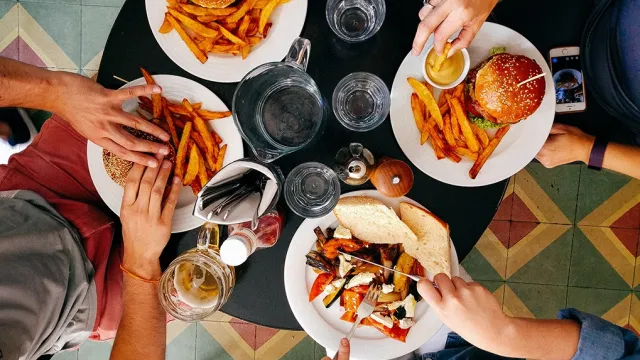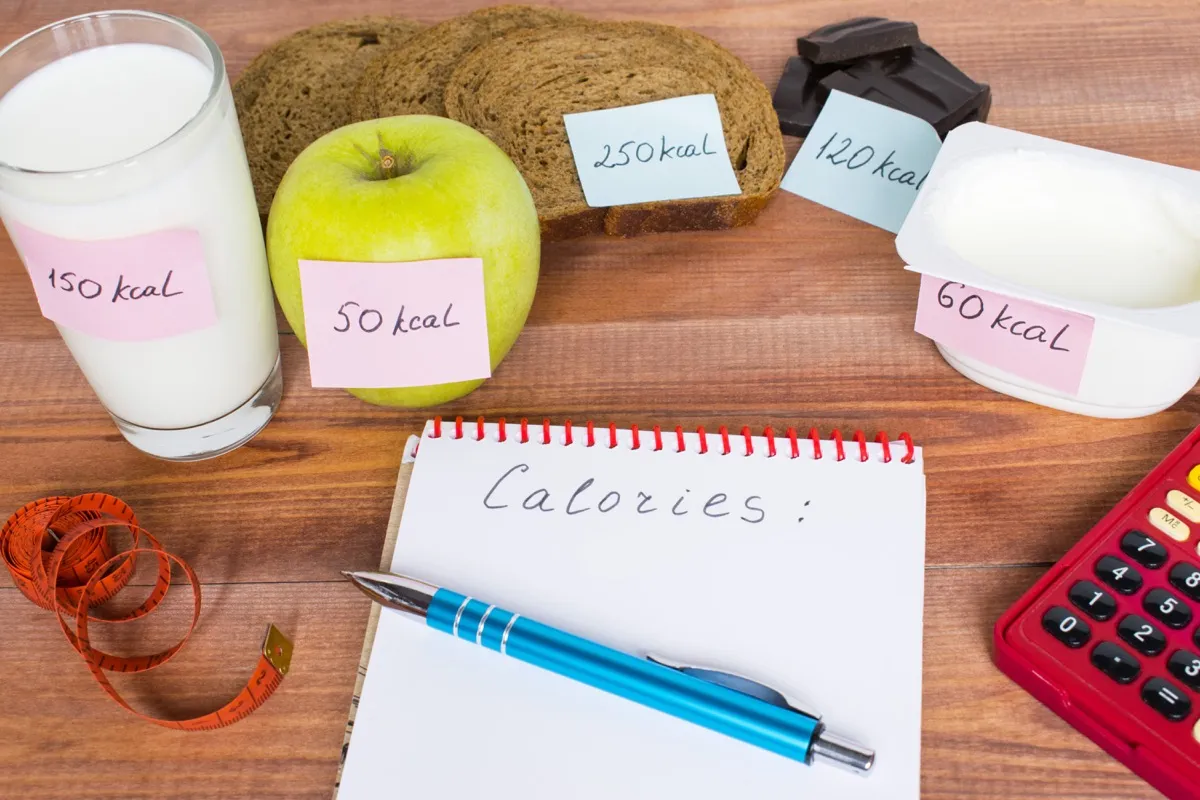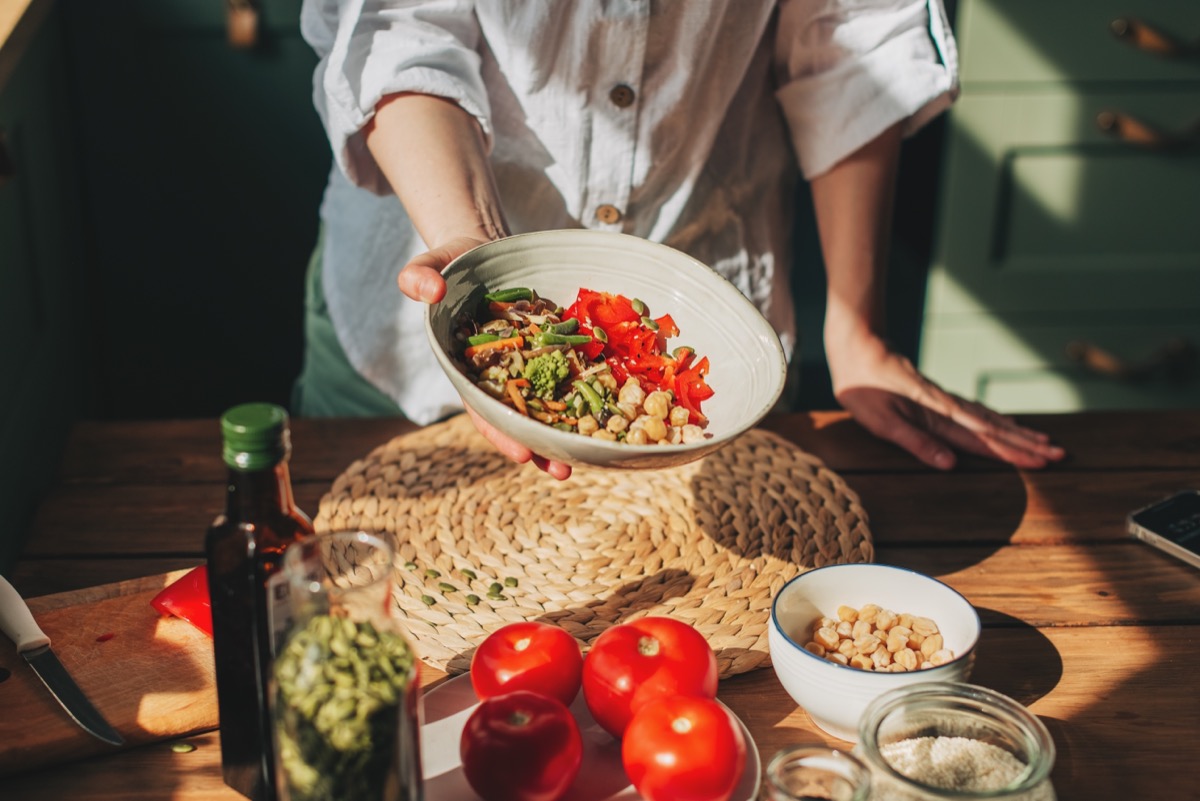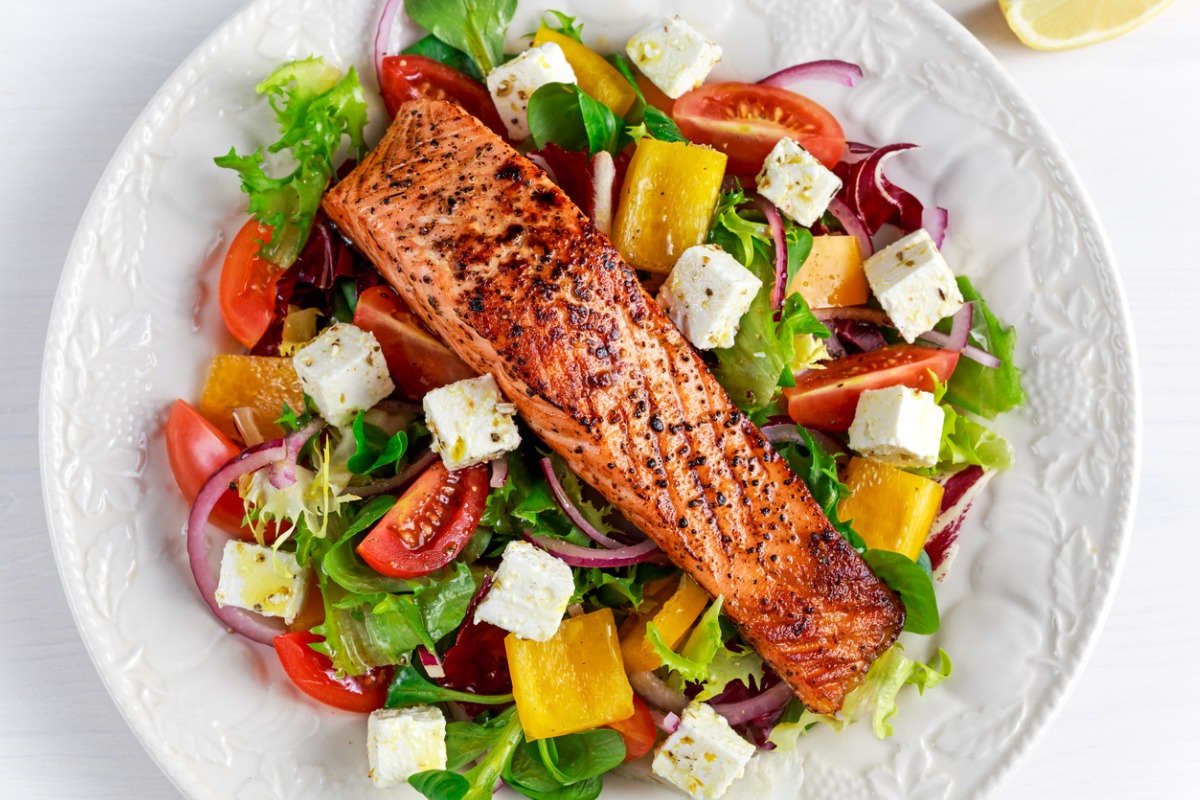10 Ways to Eat Whatever You Want Without Gaining Weight

It may sound too good to be true, but rest assured: You can eat whatever you want without gaining weight. In fact, plenty of research on traditional restriction diets shows that eliminating your favorite foods from the menu makes you much more likely to abandon your healthy diet wholesale, sending you straight back to your old eating habits.
Of course, that doesn’t mean that you can eat whatever you want whenever you want and in whatever quantities. The key is to offset your moments of indulgence in one way or another so that your overall eating style is still beneficial to your body.
For most people, this means eating a diverse, largely plant-based diet that includes plenty of fresh fruits and vegetables, whole grains, lean proteins including beans and legumes, and healthy fats. Once you’ve built that foundation, there’s no single food that you’ll need to ban from the meal plan.
Ready to find out how you can eat whatever you want without gaining weight? These are the 10 best strategies for enjoying the foods you love, while still sticking to your broader health and fitness goals.
RELATED: Certain Foods Trigger Natural Ozempic-Like Weight Loss Effect, Doctor Says.
1
Eat smaller portion sizes.

Rather than following a strict diet that eliminates your favorite foods, many people find it more sustainable to eat those things in moderation. One way to do this is by being mindful of portion sizes, taking care to eat less healthy foods in smaller quantities.
In fact, research shows that being intentional about portion sizes can have a dramatic impact on weight.
“Portion size is a key environmental driver of energy intake, and larger-than-appropriate portion sizes could increase the risk of weight gain,” says a 2014 study published in the journal Advances in Nutrition. “Of particular importance is that bouts of overeating associated with large portions are sustained and not followed by a compensatory reduction in energy intake.”
2
Eat more slowly.

Another way to eat whatever you want without gaining weight is to eat more slowly, some research suggests. According to a 2019 study published in the journal Nutrients, eating slowly is “an effective strategy for reducing food intake” without intentionally making a change.
The study included 21 participants with a mean age of 23 and a healthy body mass index (BMI). The subjects were randomly divided into two groups and instructed to consume 600-calorie meals at either a “normal” rate of six minutes or a “slow” rate of 24 minutes.
Admittedly, those who ate at a “normal” rate reported finding the meal more enjoyable. However, two hours after the meal, the group that ate slowly reported greater fullness and more accurate portion size memory. The researchers identified a linear relationship between the time taken to make portion size decisions and the response in satiety and reward brain regions.
Additionally, Ghrelin, the hormone that tells you that you’re hungry, was more suppressed post-meal in the group that ate slowly. Three hours after the meal, the slow-rate group consumed an average of 25 percent fewer calories from snacks.
RELATED: Longevity Expert Reveals How to Rearrange Your Kitchen to Lose Weight.
3
Try time-restricted eating.

For many people, intermittent fasting (IF) serves as a way of eating all the foods you love without busting the overall calorie budget. There are a few versions of time-restricted eating, allowing for even more flexibility in designing a plan that works for you. However, all of them are centered on the idea that you will designate certain times to eat, and other times to fast.
One of the most popular methods of IF is the 5:2 plan, according to Johns Hopkins Medicine. To try it, you can eat normally for five days out of the week, then limit yourself to a 500- to 600-calorie meal on the remaining two days. Though you can’t eat whatever you want all the time on this plan, it leaves ample room for enjoying the foods you love.
Other people follow an intermittent fasting plan in which they fast for a portion of each day. Many people begin with a 16:8 plan, in which they fast for 16 hours (this includes time spent sleeping) and can eat normally during the remaining eight hours.
4
Budget your calories.

If you’re tracking your calories or “points” that loosely represent calorie content, then you can budget to include the foods you love without gaining weight. Many major weight loss programs such as Weight Watchers employ this strategy to help people shed pounds.
Over time, this will help you to become more conscious of the calorie content of your meals, making your eating decisions more intuitive as you go. However, to get started, you can use this helpful calorie calculator from the Mayo Clinic to find out how many calories your body needs.
RELATED: The Only Foods You Should Be Eating at Night, Doctor Says.
5
Track your macronutrients.

Using a macronutrient calculator can also help you form a healthier diet without cutting out your favorite treats. Additionally, this will make you more aware of the nutritional value of the foods you eat, beyond their calorie content.
In particular, people who track their macros will build awareness of their protein, carbohydrate, and fat intake. All three of these are essential nutrients for the body, and none are the enemy of weight loss.
6
Try the 80/20 rule.

Some people swear by the 80/20 rule as another way to enjoy their favorite treats without consequence. To try it, you would simply need to eat a healthy, balanced diet 80 percent of the time, allowing for indulgences only during the other 20 percent of the time.
This differs from intermittent fasting in that you don’t need to stick to a designated “eating window” as long as 80 percent of your overall calories come from healthy food sources.
Krutika Nanavati, RDN, a registered dietitian and nutritionist practicing in New Zealand and a medical advisor at Clinicspots, says there are several benefits to the 80/20 rule.
“Flexibility prevents deprivation and burnout, fostering long-term adherence,” she previously told Best Life. Instead, planning for controlled indulgence ahead of time could help you avoid binging behaviors, she noted.
RELATED: Lose 50 Pounds by Following 2 Simple Rules, Successful Dieter Says.
7
Exercise regularly.

Offsetting your calorie intake with physical activity is another way to eat the foods you want in moderation without gaining weight. However, it’s important to remember that you’d need to eat 500 to 750 fewer calories a day to lose one and a half pounds in one week—meaning physical activity alone won’t be enough to trigger weight loss in most people.
“Diet has a stronger effect on weight loss than physical activity does,” says the Mayo Clinic. However, they note that “physical activity, including exercise, has a stronger effect in preventing weight regain after weight loss.”
8
Curb impulsive or emotional eating.

If you’re hoping to lose weight or maintain a healthy weight, one of the best things you can do is to address impulsive or emotional eating, rather than to ban any single food.
“Sometimes the strongest food cravings hit when you’re at your weakest point emotionally. You may turn to food for comfort—consciously or unconsciously—when facing a difficult problem, feeling stressed or even feeling bored,” the Mayo Clinic writes.
They refer to this as the “food-mood” cycle—and say it’s possible to break it by identifying your emotional triggers for overeating, lowering your stress levels, and making a plan to redirect boredom. They also say it’s important not to deprive yourself of the foods you want, but to focus on enjoying those foods mindfully when you do.
“When trying to lose weight, you might limit calories too much, eat the same foods repeatedly and banish treats. This may just serve to increase your food cravings, especially in response to emotions. Eat satisfying amounts of healthier foods, enjoy an occasional treat and get plenty of variety to help curb cravings,” their experts write.
RELATED: 116-Year-Old Woman With No Major Health Issues Reveals Her Longevity Diet.
9
Keep track of how food makes you feel.

One way to help curb emotional eating is to keep a food journal. That’s because writing down what you’re eating and how it makes you feel can help you get in tune with your body’s needs and cues.
“When you’re eating your treats, try to listen to your body when you’re actually full,” Michele Saari, MSc, RD, a registered dietitian working with EHealth Project, tells Best Life. Then, write down how you felt in that moment, to build awareness for next time.
10
Don’t cut foods out, crowd them out.

Most traditional diets will tell you that you need to avoid certain foods. However, the Institute for Integrative Nutrition says that all too often, this sets you up for failure.
“Maybe the first day or so felt ok, but as time went on the recommended substitutes probably didn’t make up for the cravings that lingered for the foods you were used to or favored. When such diets come to an end, the most common outcome is a gradual return to old eating habits,” they note.
Instead of cutting out foods or food groups, they recommend crowding them out by focusing on adding to your diet.
“The more healthy foods you add to your existing diet, the less room you’ll have for junk, and the more sensitive your palette will become to ultimately appreciate a greater variety of healthy ingredients,” their experts continue. “You’ll literally crowd out the unhealthy foods until you reach a balanced diet that is sustainable and makes you feel great—even if that still includes an occasional guilt-free indulgence!”
Best Life offers the most up-to-date information from top experts, new research, and health agencies, but our content is not meant to be a substitute for professional guidance. If you have health questions or concerns, always consult your healthcare provider directly.
This story has been updated to include additional entries, fact-checking, and copy-editing.